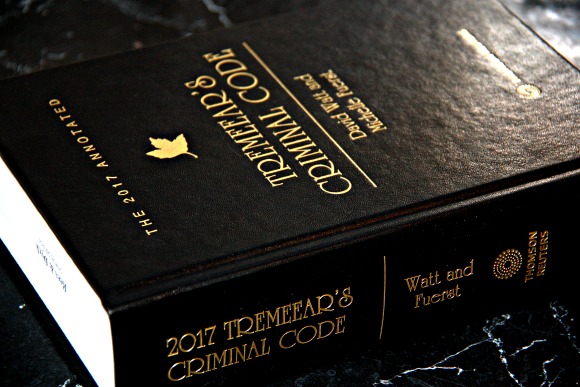Every offence in the Criminal Code of Canada will fall under three categories: summary conviction offences, indictable offences, and offences in which the Crown Attorney chooses to proceed by summary conviction or indictment. Summary conviction offences are of a less serious nature than indictable offences.
Summary Conviction Offences
There are very few offences under the Criminal Code of Canada that are purely summary conviction offences. These offences are the least serious in the Criminal Code. These offences include:
-
causing a disturbance
-
trespassing at night
-
solicitation
-
nudity
-
pretending to practice witchcraft
-
defacing currency
Unless the Criminal Code specifies otherwise, the maximum penalty for a summary conviction offence is six months imprisonment, a $5000 fine or both. All summary conviction offences must be laid within 6 months after the offence was allegedly committed unless both the Crown Attorney and accused agree otherwise. Accused are not required to submit to police fingerprinting when arrested or convicted for summary conviction offences.
Summary conviction offences are exclusively dealt with in the Manitoba Provincial Court. Unless an accused is found committing the offence, the police will not typically arrest the accused but instead give him or her a notice to appear in court at a certain date and time. If the accused retains a lawyer, the lawyer may appear on the behalf of the accused in court until such a time that the accused is required to be present (i.e. for a trial, motion, application, or sentencing). Appeals of summary conviction offences are heard by the Court of Queen’s Bench (Superior Court of Justice).
Indictable Conviction Offences
Purely indictable offences are the most serious offences in the Criminal Code. Some of these offences carry the potential punishment of life in prison. These offences include:
-
murder
-
acts of terrorism
-
criminal organization offences
-
treason
-
break and enter
-
drug trafficking
There is no limitation period. An indictable offence charge can be laid at anytime after the offence has occurred (except for the charge of treason, which has 3 year limitation period). Those charged with an indictable offence have the right to elect their mode of trial:
-
Judge alone in Provincial Court without a preliminary hearing
-
Judge alone in the Court of Queen’s Bench (Superior Court of Justice) with or without a preliminary hearing, or;
-
a jury trial with or without a preliminary hearing.
However, for certain indictable offences the accused may not be entitled to preliminary hearing or trial by jury. For other indictable offences, like first degree murder, the accused may elect to have a trial by judge alone only with the consent of the Crown Attorney. Indictable offences tend to be more complicated in nature. Accused are required to submit to the police for fingerprinting. Appeal of indictable offences are heard by the province’s Court of Appeal.
Hybrid Offences
Most of the offences in the Criminal Code are hybrid offences. For these offences the Crown Attorney may choose either to proceed by summary conviction or indictment. These offences include:
-
assault
-
assault with weapon
-
theft under
-
fraud under
-
simple possession
-
uttering threats
Usually, the Crown Attorney will proceed by summary conviction for less serious offences, but they may choose to proceed by indictment after considering factors such as the seriousness of allegations or the accused’s prior criminal record.
The United States also categorize the seriousness of offences. In Canada less serious offences are referred to as summary conviction offences, while in the United States they are referred to as misdemeanors. Whereas in Canada serious offences are referred to as indictable offences, and in the United States they would be felony offences.
An important difference between summary conviction offences and indictable offences is the waiting period that must be meet after you have completed your sentence before you are eligible for a record suspension (pardon). In the case of a summary offence, you must wait five years. For indictable offences, the waiting period is increased to 10 years.

